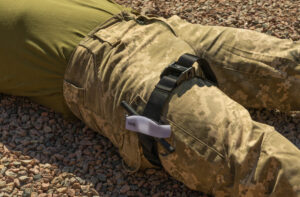Effective Management of Amputation Emergencies
While amputation incidents are uncommon in daily activities, understanding how to respond when they occur is crucial. Immediate action can significantly impact outcomes, particularly in controlling blood loss and preserving the amputated limb for potential reattachment.
Immediate Actions for Amputation
The primary focus following an amputation is to rapidly control any bleeding. Start with a primary survey, aiming to detect life-threatening conditions within 90 seconds. Identifying arterial bleeding is vital, as it can lead to severe blood loss quickly.
Controlling Bleeding
Apply direct pressure to the wound using suitable dressings. For intense bleeding, especially from arteries, use thick, absorbent trauma dressings designed to manage significant blood loss. If the bleeding persists and is vigorous, employing a tourniquet may be necessary to effectively stop the blood flow.
Preservation of the Amputated Limb
Handling the amputated limb correctly enhances the possibility of reattachment. Initially, wrap the part in cling film to shield it from contamination. Subsequently, envelop it in a towel or a light blanket for extra protection. Avoid direct contact with ice, as this can damage the tissue irreparably. Instead, place the limb in a container with icy water to cool it gently without causing tissue damage, thus preserving nerves and tissues.
Transport and Hospital Care
It’s essential to transport both the patient and the preserved limb to a hospital capable of handling such emergencies without delay. Timely, proficient medical intervention is crucial for the best possible outcomes.
Understanding how to manage an amputation effectively can save lives and improve the chances of successful limb reattachment. Remember, quick and appropriate actions are key in these critical situations.


Leave a Reply